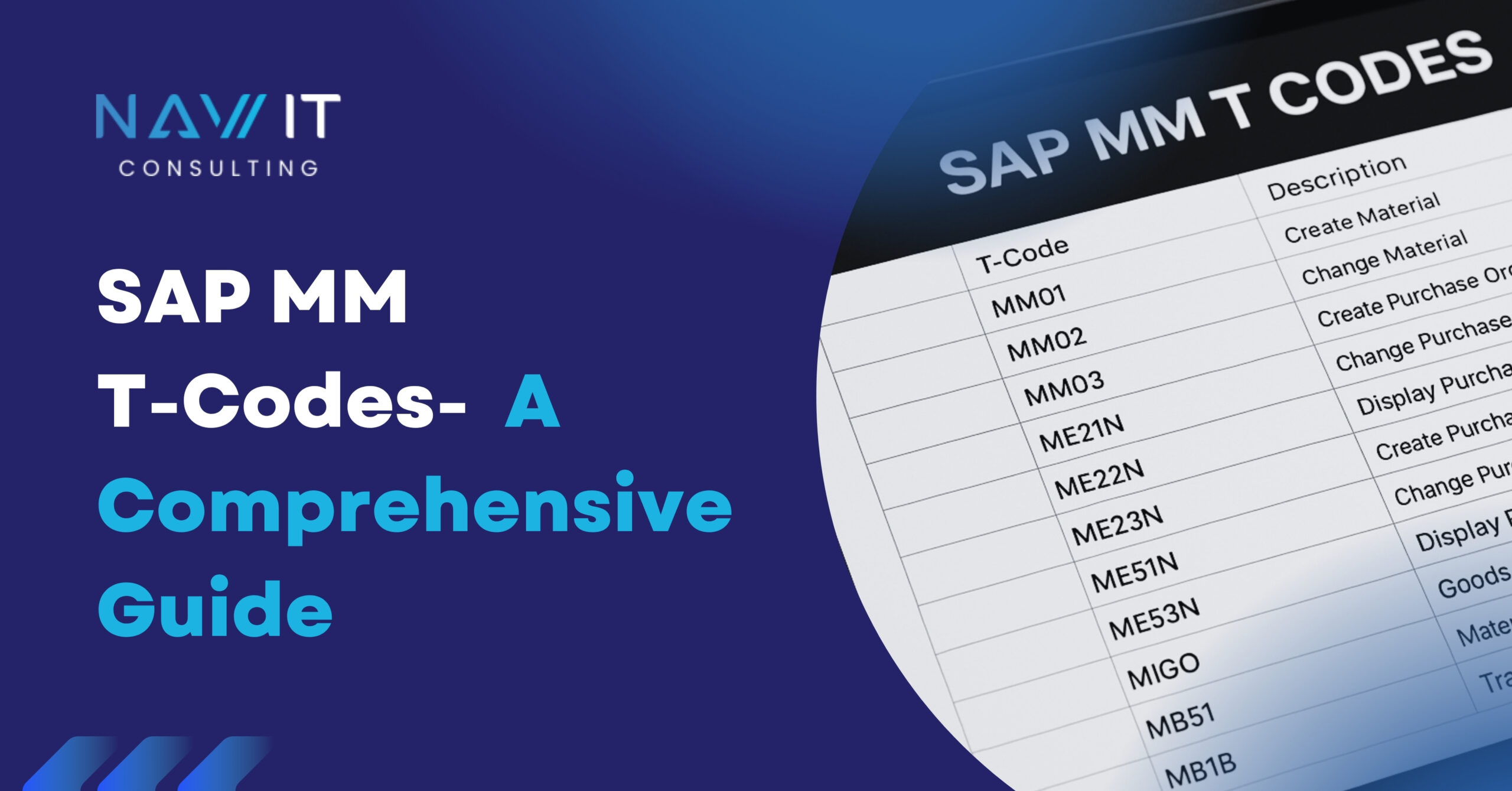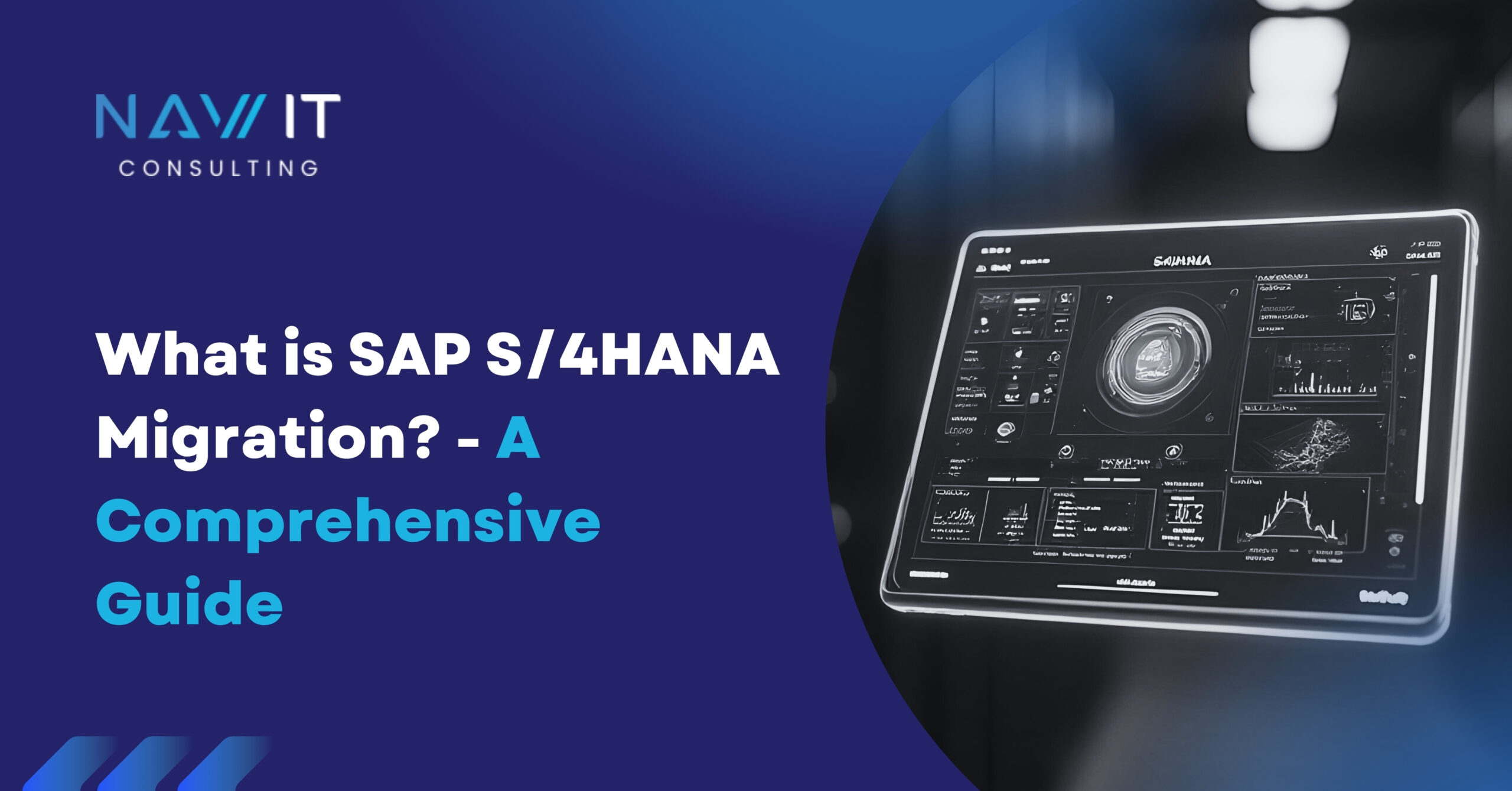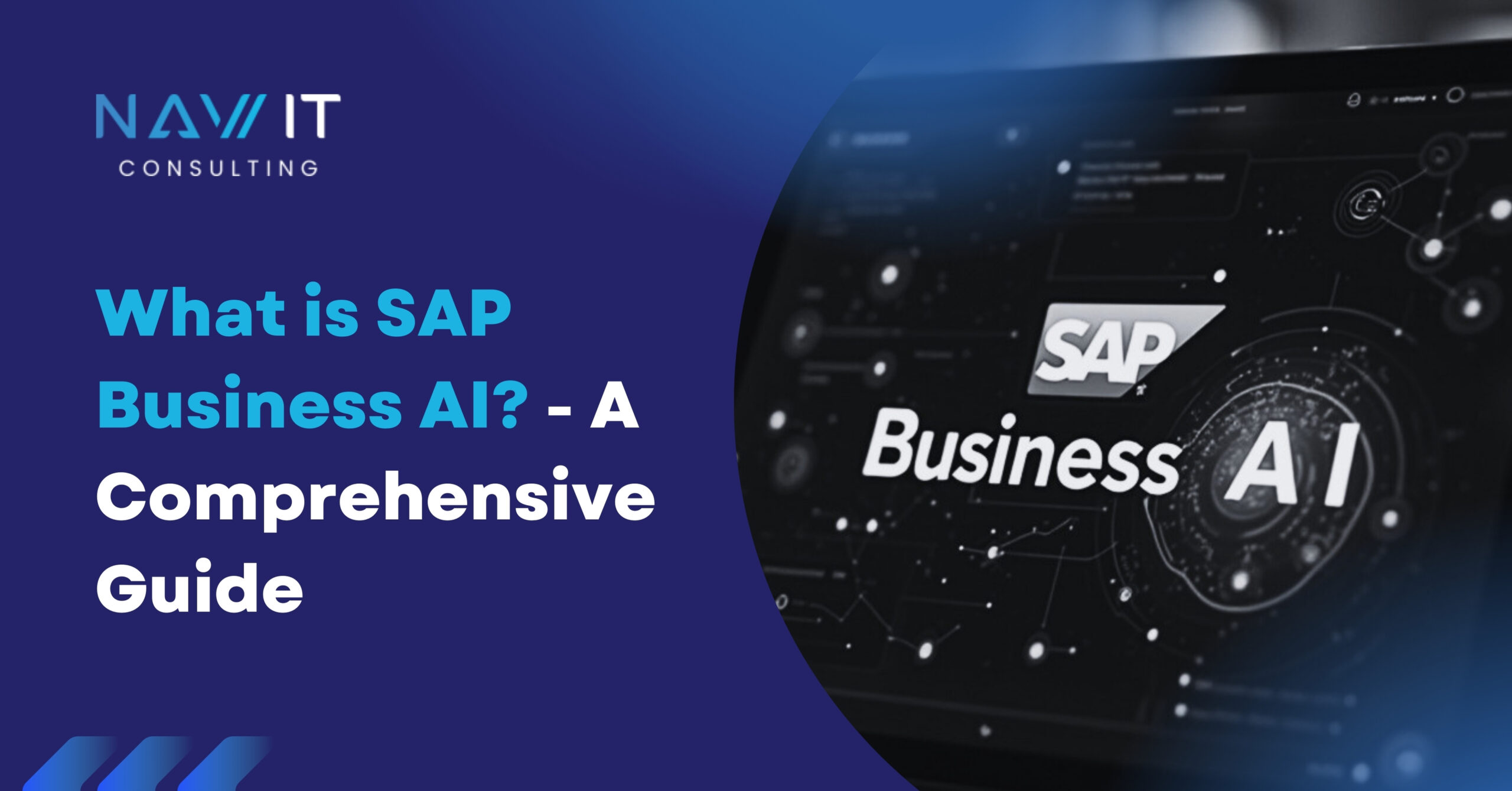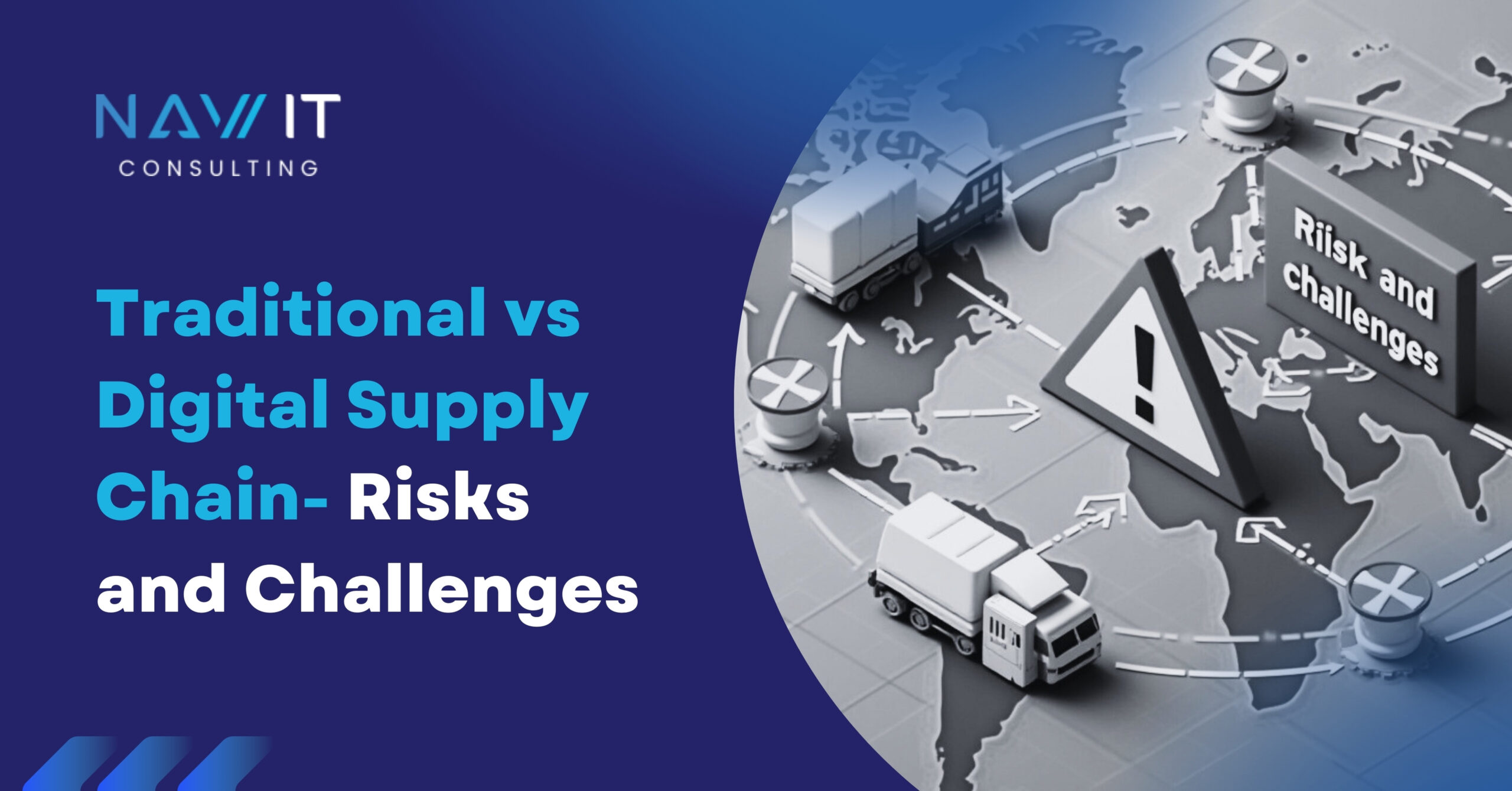AI adoption in enterprises is accelerating, with over 80% of companies planning to integrate AI into their operations by 2025. SAP is leading this transformation with SAP Business AI, a suite of enterprise-grade AI solutions designed for industry-specific use cases.
Recently, SAP introduced the SAP Business AI Feature Catalog and Estimator tool, providing businesses with a structured way to explore AI capabilities and assess their potential value. These updates help companies make data-driven decisions, optimize operations, and enhance customer experiences.
In this blog, we’ll dive into what SAP Business AI is, its latest innovations, key features, real-world use cases, and how businesses can leverage it for a smarter future.
What is SAP Business AI?
SAP Business AI is an enterprise-grade artificial intelligence solution embedded within the SAP ecosystem. It is designed to help businesses leverage AI-powered automation, predictive analytics, and intelligent decision-making across various industries. Unlike general AI platforms, SAP Business AI is built specifically for enterprises, focusing on scalability, security, and industry-specific use cases.
With AI becoming an essential component of digital transformation, SAP integrates AI seamlessly into its business applications, ensuring that companies can harness AI’s power without extensive technical expertise. SAP Business AI is not a standalone AI tool; instead, it enhances existing SAP products like SAP S/4HANA, SAP SuccessFactors, SAP Ariba, and SAP Customer Experience, embedding AI capabilities directly into business processes.
Key Aspects of SAP Business AI
1. Enterprise-Grade AI
- Designed for large-scale business operations with high security, compliance, and governance in mind.
- Ensures AI-driven decisions are transparent, ethical, and aligned with enterprise policies.
- Uses SAP’s proprietary AI models alongside open-source frameworks to create customized AI solutions for businesses.
2. Industry-Specific AI Capabilities
- Unlike generic AI platforms, SAP Business AI focuses on specific industry needs, ensuring that AI models provide accurate and relevant insights.
- Pre-built AI models for industries like manufacturing, retail, finance, healthcare, and logistics, helping businesses optimize workflows.
- Enables AI-driven fraud detection, supply chain forecasting, personalized customer experiences, and workforce management.
3. Deep Integration with SAP Solutions
- Embedded within SAP’s core business applications, ensuring a seamless AI experience without the need for third-party integration.
- Works with SAP S/4HANA for intelligent financial management, SAP SuccessFactors for AI-driven HR processes, and SAP Ariba for procurement automation.
- Provides a unified AI experience by integrating across SAP’s cloud, data, and analytics platforms.
4. Enhancing Decision-Making with AI
- SAP Business AI analyzes real-time data to offer actionable insights, helping businesses make informed decisions faster.
- Uses machine learning (ML) and predictive analytics to forecast trends, optimize resources, and improve efficiency.
- Automates decision-making in critical areas like finance, supply chain, and customer service, reducing human intervention and errors.
Why SAP Business AI Matters for Enterprises
AI is no longer a futuristic concept—it is an essential driver of efficiency, innovation, and business growth. However, many enterprises struggle with AI adoption due to complex implementation processes and data integration challenges. SAP Business AI removes these barriers by embedding AI directly into business workflows, allowing companies to:
- Automate repetitive tasks like invoice processing, document management, and HR operations.
- Enhance customer experiences with AI-driven personalization, chatbots, and predictive support.
- Improve operational efficiency through AI-powered supply chain optimization and intelligent demand forecasting.
- Gain data-driven insights for strategic decision-making in finance, HR, and procurement.
With SAP Business AI, enterprises don’t need to build AI solutions from scratch—they can leverage AI-powered features directly within their existing SAP applications. This approach ensures faster AI adoption, lower implementation costs, and maximum business value.
Latest Updates in SAP Business AI
SAP continues to expand its AI capabilities with new tools and enhancements designed to help businesses discover, evaluate, and implement AI-powered features more effectively. The latest updates include:
- SAP Business AI Feature Catalog – A centralized repository of AI capabilities across SAP solutions.
- SAP Business AI Estimator – A tool to assess the potential business value of AI adoption.
These innovations make it easier for businesses to prioritize investments, and measure the impact of AI in their operations.
SAP Business AI Feature Catalog
The SAP Business AI Feature Catalog is a comprehensive repository that helps businesses explore AI capabilities available across SAP’s product ecosystem.
Key Highlights:
- Centralized AI Resource – A structured database showcasing all AI features integrated into SAP applications.
- Industry & Business Process Categorization – Features are categorized based on industry verticals, business functions, and SAP products, making it easy to find relevant AI capabilities.
- Tailored AI Solutions – Businesses can discover pre-built AI models for fraud detection, predictive maintenance, demand forecasting, and more.
- AI Adoption Roadmap – Organizations can assess how AI features align with their business needs and create a strategic AI adoption plan.
How the Feature Catalog Empowers Businesses
- Streamlines AI Discovery – Businesses no longer need to sift through multiple SAP products to find AI capabilities.
- Accelerates AI Implementation – By providing pre-integrated AI models, companies can reduce development time and implementation costs.
- Enhances AI Decision-Making – Organizations can compare AI features based on industry relevance, use cases, and expected benefits.
SAP’s AI Feature Catalog acts as a one-stop solution for businesses looking to bolster AI-driven efficiencies in finance, HR, supply chain, and customer service.
SAP Business AI Estimator
The SAP Business AI Estimator is a powerful evaluation tool that helps companies quantify the potential business value of AI adoption. It provides ROI estimates and business impact analysis, allowing organizations to prioritize AI investments effectively.
How the Estimator Works
- Analyzes Business Processes – Evaluates key business functions and identifies areas where AI can drive efficiency and cost savings.
- Generates ROI Estimates – Provides data-driven insights on the financial benefits of implementing AI-powered features.
- Prioritizes AI Use Cases – Helps organizations decide which AI features to adopt first based on their potential business value.
- Supports AI Strategy Development – Enables businesses to create a roadmap for AI adoption, ensuring alignment with corporate goals.
Why the Estimator is a Game-Changer
- Reduces AI Investment Risks – Companies can make data-backed decisions before investing in AI solutions.
- Optimizes AI Spending – Ensures that businesses allocate resources to high-impact AI initiatives.
- Improves AI Adoption Rates – Helps executives and stakeholders understand the tangible benefits of AI, leading to faster buy-in.
By combining the Feature Catalog and Estimator, SAP empowers businesses to explore AI capabilities strategically, measure their impact, and implement AI solutions with confidence.
Key Features of SAP Business AI
SAP Business AI is designed to bring enterprise-grade artificial intelligence to organizations, enabling them to enhance productivity, automate tasks, and drive smarter decision-making. It offers industry-specific AI solutions integrated within SAP’s ecosystem, ensuring seamless AI adoption without the need for custom development.
Below are the key capabilities of SAP Business AI that are transforming business operations:
1. Intelligent Automation
SAP Business AI enables organizations to automate repetitive and time-consuming tasks, freeing up employees for more strategic activities.
- Invoice Processing: AI-powered automation streamlines invoice matching, approvals, and payments, reducing errors and improving cash flow.
- HR Onboarding: Automates resume screening, employee documentation, and training recommendations, accelerating the hiring process.
- Procurement & Order Management: AI-driven workflows optimize purchase requisitions, vendor selection, and order processing, ensuring accuracy and efficiency.
Business Impact: Reduces manual workload, minimizes human errors, and increases operational efficiency.
2. Predictive Analytics
- SAP Business AI uses advanced machine learning models to forecast trends, anticipate risks, and optimize business strategies.
- Demand Forecasting: AI predicts future demand fluctuations, helping businesses optimize inventory and reduce stockouts.
Supply Chain Optimization: AI-driven insights improve logistics planning, supplier risk assessment, and warehouse efficiency. - Predictive Maintenance: AI detects potential equipment failures before they happen, reducing downtime and maintenance costs.
Business Impact: Enhances forecast accuracy, improves resource allocation, and reduces operational risks.
3. Generative AI
SAP integrates large language models (LLMs) to automate content creation, code generation, and customer interactions.
- Content Generation: Generative AI assists in drafting reports, marketing copy, and legal documents, improving productivity.
- Code Automation: Developers can generate, optimize, and debug code using AI-assisted development tools.
- Customer Support: Generative AI-powered chatbots handle queries, resolve issues, and provide personalized assistance 24/7.
Business Impact: Speeds up content creation, enhances developer productivity, and improves customer service.
4. Natural Language Processing (NLP)
SAP Business AI enhances human-computer interactions with NLP-driven solutions that improve communication and accessibility.
- Conversational AI: AI-powered virtual assistants and chatbots provide natural, human-like interactions for customers and employees.
- Voice Recognition: AI interprets and processes spoken commands, enabling hands-free workflows.
- Document Understanding: AI extracts key insights from contracts, invoices, and customer feedback, automating data processing.
Business Impact: Improves user engagement, enhances data accessibility, and reduces manual data entry efforts.
5. Personalization
AI enables SAP applications to deliver tailored experiences for customers and employees, improving engagement and satisfaction.
- Personalized Marketing: AI customizes product recommendations, email campaigns, and promotions based on user behavior.
- Employee Experience: AI curates learning paths, career recommendations, and performance insights for workforce development.
- Customer Insights: AI analyzes purchase history, preferences, and sentiment data to create highly personalized experiences.
Business Impact: Increases customer engagement, boosts conversion rates, and enhances employee satisfaction.
How SAP Business AI Is Different
While many AI platforms offer general-purpose capabilities, SAP Business AI stands out due to its industry-specific focus, enterprise-grade AI features, and seamless integration with SAP’s ecosystem. Here’s what makes it unique:
1. Industry-Specific AI Solutions
Unlike generic AI platforms, SAP Business AI is designed for enterprise applications across industries like finance, supply chain, HR, and customer experience.
- Prebuilt AI Models: SAP Business AI offers AI models tailored to industry needs, reducing the time and effort required for customization.
- Regulatory Compliance: AI solutions align with industry regulations and security standards, ensuring data protection and compliance.
- Use-Case-Driven AI: Businesses can implement AI solutions that address specific operational challenges, improving efficiency and decision-making.
Advantage: Faster AI adoption with industry-ready solutions.
2. Easy Integration with SAP Solutions
SAP Business AI is embedded within SAP’s core applications, allowing businesses to use AI within familiar systems.
- SAP S/4HANA: AI-driven analytics optimize financial planning, procurement, and operations.
- SAP SuccessFactors: AI enhances recruitment, employee engagement, and HR automation.
- SAP Ariba: AI streamlines procurement, supplier management, and contract negotiations.
Advantage: No need for third-party AI tools—AI is natively integrated within SAP products.
3. Unique AI Tools: Feature Catalog & Estimator
SAP provides exclusive AI adoption tools that help businesses identify and implement AI capabilities effectively.
Feature Catalog:
- A centralized repository of AI features available across SAP solutions.
- Categorized by industry, business process, and SAP product for easy discovery.
AI Estimator:
- Analyzes business processes to estimate the ROI of AI adoption.
- Helps organizations prioritize AI investments based on potential business value.
Advantage: Simplifies AI adoption by helping businesses choose the right AI features for their needs.
4. Enterprise-Grade AI with Trust & Security
SAP Business AI ensures that AI models are trustworthy, scalable, and secure, making them ideal for enterprise use.
- Data Privacy & Security: SAP AI adheres to strict data governance policies, ensuring AI applications meet GDPR, ISO, and other regulatory standards.
- Transparent AI Models: AI models are designed to be explainable and auditable, reducing bias and increasing trust in AI-driven decisions.
- Scalability: SAP AI scales with enterprise growth, making it suitable for large-scale AI deployments.
Advantage: Secure and compliant AI built for enterprises.
5. AI-Powered Business Intelligence & Automation
SAP Business AI goes beyond automation by offering predictive insights and intelligent decision-making.
- Predictive Analytics: AI forecasts market trends, demand fluctuations, and operational risks.
- Intelligent Automation: AI eliminates manual tasks, such as invoice processing, HR workflows, and customer support.
- Conversational AI: AI-powered chatbots enhance self-service and customer engagement.
Advantage: Enhances productivity and empowers businesses with AI-driven insights.
SAP Business AI is not just another AI platform—it is a strategic AI solution built for enterprises that require scalability, security, and industry-specific capabilities.
Real-World Use Cases of SAP Business AI
SAP Business AI is transforming industries by enabling data-driven decision-making, intelligent automation, and predictive analytics. Below are real-world applications across different business functions.
Finance
SAP Business AI enhances financial decision-making, risk assessment, and fraud detection by leveraging AI-powered insights.
- Fraud detection helps identify irregular transactions, unauthorized activities, and compliance violations in real time.
- Cash flow forecasting allows businesses to anticipate cash flow fluctuations, optimize capital allocation, and reduce liquidity risks.
- Expense management automates invoice matching, expense approvals, and budget tracking, ensuring financial accuracy.
By implementing AI in finance, businesses can reduce financial risks, improve cash management, and enhance fraud prevention.
Supply Chain
AI-driven automation and predictive analytics enable businesses to streamline logistics, optimize inventory, and reduce disruptions.
- Demand planning uses AI to analyze market trends, historical data, and external factors, helping predict demand surges and shortages.
- Inventory optimization provides recommendations for optimal stock levels, reorder points, and distribution strategies to prevent overstocking or shortages.
- Logistics management improves route optimization, freight cost forecasting, and supplier risk assessment for more efficient supply chain operations.
With AI-powered supply chain management, companies can lower operational costs, improve inventory accuracy, and enhance overall resilience.
Human Resources (HR)
SAP Business AI transforms talent acquisition, workforce management, and employee engagement with AI-powered tools.
- Talent matching and recruitment streamline hiring by shortlisting candidates based on skill compatibility, past experience, and cultural fit.
- Employee sentiment analysis assesses feedback, surveys, and communication patterns to gauge workplace sentiment.
- Personalized learning and development programs use AI to recommend training programs, career paths, and mentorship opportunities.
These AI-driven capabilities help businesses accelerate hiring, improve employee engagement, and enhance talent retention.
Customer Experience
SAP Business AI enhances customer interactions, marketing campaigns, and support services with AI-driven personalization.
- Personalized marketing campaigns analyze customer data to create hyper-personalized promotions, product recommendations, and targeted ads.
- AI-powered chatbots handle customer inquiries, complaints, and support requests 24/7 using natural language processing.
- Sentiment analysis interprets customer feedback to identify trends, improve satisfaction, and resolve pain points.
By leveraging AI in customer experience, businesses can increase customer engagement, enhance brand loyalty, and reduce support costs.
Getting Started with SAP Business AI
Adopting AI within an enterprise requires strategic planning and the right tools. SAP Business AI simplifies this journey by providing businesses with easy-to-access AI capabilities and tools for assessing AI adoption potential. Here’s how to get started:
1. Exploring the SAP Business AI Feature Catalog
The SAP Business AI Feature Catalog is the first step for businesses looking to implement AI. It provides a comprehensive repository of AI-powered functionalities across various SAP applications.
How to Access the Feature Catalog?
- Visit the SAP website or navigate through the SAP Fiori Launchpad.
- Browse AI features categorized by industry, business process, or SAP product.
- Filter AI solutions based on specific business needs.
Why Use the Feature Catalog?
Discover AI Capabilities: Easily find AI-powered features relevant to your industry.
Understand Use Cases: See real-world applications of AI in SAP solutions.
Plan AI Integration: Identify which AI functionalities align with your business goals.
2. Using the SAP Business AI Estimator
Before implementing AI, businesses need to assess the ROI (Return on Investment) and potential impact. The SAP Business AI Estimator helps quantify the value AI can bring to an organization.
How Does the AI Estimator Work?
- Input Business Process Data: Provide key operational details and select relevant AI features.
- Analyze Potential Impact: The tool evaluates efficiency improvements, cost reductions, and revenue growth.
- Get AI Adoption Insights: Businesses receive an estimated ROI for each AI feature.
Why Use the AI Estimator?
Prioritize AI Investments: Focus on AI features that provide the highest ROI.
Justify AI Adoption: Present data-driven insights to stakeholders and decision-makers.
Strategic AI Planning: Align AI implementation with business objectives.
3. Implementing SAP Business AI: Resources & Support
Once businesses identify the AI capabilities they need, the next step is implementation. SAP offers a range of resources to help companies seamlessly integrate AI into their existing operations.
Training & Certifications
- SAP AI Training Programs: Learn how to use SAP’s AI-powered features effectively.
- SAP AI Certifications: Get certified in AI-driven business intelligence and automation.
Partnering with SAP Experts
- SAP Consulting Services: Work with SAP experts for a custom AI implementation plan.
- SAP Partner Network: Collaborate with SAP-certified partners to streamline AI deployment.
Technical Documentation & Support
- SAP Help Portal: Access step-by-step guides on AI feature deployment.
- SAP Community: Engage with AI practitioners for best practices and expert advice.
Conclusion
Organizations across industries are leveraging AI to optimize processes, enhance decision-making, and drive innovation. SAP Business AI provides industry-specific, enterprise-grade AI solutions. By integrating AI into SAP applications like SAP S/4HANA, SAP SuccessFactors, and SAP Ariba, businesses can enhance efficiencies, reduce costs, and improve customer and employee experiences. The SAP Business AI Feature Catalog and SAP Business AI Estimator make it easier than ever to explore, evaluate, and implement AI solutions tailored to specific business needs.
Key Takeaways:
- AI-Powered Efficiency – Automate repetitive tasks, improve accuracy, and reduce manual effort.
- Data-Driven Decisions – Use predictive analytics and AI insights to drive smarter business strategies.
- Industry-Specific AI – Benefit from prebuilt AI capabilities designed for enterprise use cases.
- Easy AI Adoption – The Feature Catalog and Estimator help businesses prioritize AI investments and maximize ROI.
SAP Business AI with NAV IT
Implementing AI-powered SAP solutions requires the right expertise. NAV IT specializes in SAP implementation, AI-driven digital transformation, and intelligent business solutions. Whether you’re looking to explore AI features, optimize your SAP environment, or drive innovation with AI, NAV IT provides expert guidance and tailored solutions to help your business succeed.
Get started today! Visit NAV IT to explore how we can help you lemploy SAP Business AI for smarter, more efficient business operations.
FAQs About SAP Business AI
1. What is Business AI in SAP?
Business AI in SAP refers to artificial intelligence solutions embedded within SAP applications to enhance business processes, automate tasks, and provide data-driven insights for improved decision-making.
2. What is Business Intelligence in SAP?
Business Intelligence (BI) in SAP is a suite of tools and technologies that help organizations collect, analyze, and visualize data to support strategic decision-making, primarily through SAP BusinessObjects and SAP BW.
3. Will SAP be replaced by AI?
AI will enhance SAP systems but is unlikely to replace them entirely. Instead, AI-powered automation, predictive analytics, and machine learning will improve SAP’s efficiency and decision-making capabilities.
4. What is the best AI tool for SAP?
SAP offers AI-powered tools like SAP AI Core, SAP Business AI, and SAP AI Foundation, but integrations with external AI tools like Microsoft Azure AI and Google Vertex AI also enhance SAP functionalities.
5. Can AI replace ERP?
AI can optimize ERP systems but cannot fully replace them. ERP platforms like SAP integrate AI for automation, forecasting, and analytics, but core ERP functions still require structured workflows and business logic.
6. What is SAP AI called?
SAP AI is commonly referred to as SAP Business AI, which includes AI-driven automation, predictive analytics, and intelligent process optimization embedded within SAP applications.









